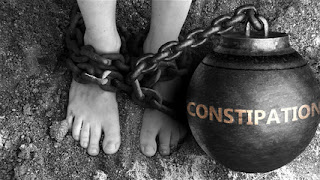Beating Spring Allergies
As the weather beings to improve and the spring fever bug begins to crawl back into our lives, one thing is for sure; allergy sufferers beware, here it comes — the dreaded season of itchy, red eyes, sneezing, post-nasal drip will affect more than 10 million of you in this country.
The number of those suffering from seasonal allergies has doubled since 1980.
I am curious as to why the numbers continue to rise, as we have not doubled the number of grasses or trees in our environment. More likely it is related to the poor quality of our foods. Eating on the go, frozen meals, diets high in sugar, dairy and wheat are factors I need the reader to consider.
Any naturopath will tell you, once you place an individual on the elimination diet, most of the allergy symptoms subside and can even resolve permanently. The elimination diet removes most common foods and food groups that cause sensitization or reactivity. Dairy and wheat (gluten) are largely responsible for allergies in industrialized western nations.
Once the allergens are removed for a period of time, the individual’s reactivity diminishes dramatically. What does eating have to do with my sensitivity to pollen you say? Simply put, the more foods you eat that increase your “reactiveness” the more you react to your environment in the form of allergy symptoms and skin issues.
Allergy testing is available and can be very costly. The elimination diet is the most cost effective way to identify and eliminate allergens in your diet. After one month, most allergy symptoms will virtually disappear. Gradually and one at a time, you can add things back into your diet and you yourself will notice and learn first hand what your food sensitivities are.
People who follow the Blood Type Diet are not likely to suffer from seasonal allergies as this way of eating eliminates inflammatory foods from their diet.
Besides avoiding food triggers here are some supplements that may help calm down your allergy symptoms or reactivity.
Omega-3 fatty acids. A German study published in the journal Allergy found that people with a diet rich in omega-3 fatty acids (fish, krill, flax, walnut and olive oils) suffer from fewer allergy symptoms.
Probiotics. In a 2008 study, researchers discovered that people who took probiotics throughout the allergy season had lower levels of antibodies that caused allergy symptoms. It is also suggested that pregnant women who take probiotics regularly may help to prevent allergies in their children.
Vitamin D3. Insufficient vitamin D3 levels have been linked to more severe allergies and asthma in children. Vitamin D3 has also been found to reduce allergic reactions to mold.
Hot Peppers. Chili peppers, horseradish and hot mustards work as natural decongestants.
Locally produced honey. A remedy my husband swears by, locally produced honey taken daily, can be described as a mini allergy vaccine as it exposes a tiny amount of allergens into your system helping you build up a natural immunity. The honey must be local to your area.
Neti pot. A neti pot is a very inexpensive and beneficial therapy that you can do daily. It involves a gentle irrigation of your nose with warm water and a bit of salt. Neti pot’s can be found in most health food stores.
Avoiding food triggers is the best way to reduce or eliminate allergy symptoms. It has worked so well for my clientele. If you’d like a copy of the elimination diet you can find it at my website, listed below. Depending on what your diet is right now, you may find it difficult at first as you have become “addicted” to many of your allergens. Weight loss and a generalized improvement in energy levels are common in those on the elimination diet.
I challenge you to enjoy the nice weather by optimizing your diet. Not only will you resolve allergy symptoms but your overall health will improve as well.
The number of those suffering from seasonal allergies has doubled since 1980.
I am curious as to why the numbers continue to rise, as we have not doubled the number of grasses or trees in our environment. More likely it is related to the poor quality of our foods. Eating on the go, frozen meals, diets high in sugar, dairy and wheat are factors I need the reader to consider.
Any naturopath will tell you, once you place an individual on the elimination diet, most of the allergy symptoms subside and can even resolve permanently. The elimination diet removes most common foods and food groups that cause sensitization or reactivity. Dairy and wheat (gluten) are largely responsible for allergies in industrialized western nations.
Once the allergens are removed for a period of time, the individual’s reactivity diminishes dramatically. What does eating have to do with my sensitivity to pollen you say? Simply put, the more foods you eat that increase your “reactiveness” the more you react to your environment in the form of allergy symptoms and skin issues.
Allergy testing is available and can be very costly. The elimination diet is the most cost effective way to identify and eliminate allergens in your diet. After one month, most allergy symptoms will virtually disappear. Gradually and one at a time, you can add things back into your diet and you yourself will notice and learn first hand what your food sensitivities are.
People who follow the Blood Type Diet are not likely to suffer from seasonal allergies as this way of eating eliminates inflammatory foods from their diet.
Besides avoiding food triggers here are some supplements that may help calm down your allergy symptoms or reactivity.
Omega-3 fatty acids. A German study published in the journal Allergy found that people with a diet rich in omega-3 fatty acids (fish, krill, flax, walnut and olive oils) suffer from fewer allergy symptoms.
Probiotics. In a 2008 study, researchers discovered that people who took probiotics throughout the allergy season had lower levels of antibodies that caused allergy symptoms. It is also suggested that pregnant women who take probiotics regularly may help to prevent allergies in their children.
Vitamin D3. Insufficient vitamin D3 levels have been linked to more severe allergies and asthma in children. Vitamin D3 has also been found to reduce allergic reactions to mold.
Hot Peppers. Chili peppers, horseradish and hot mustards work as natural decongestants.
Locally produced honey. A remedy my husband swears by, locally produced honey taken daily, can be described as a mini allergy vaccine as it exposes a tiny amount of allergens into your system helping you build up a natural immunity. The honey must be local to your area.
Neti pot. A neti pot is a very inexpensive and beneficial therapy that you can do daily. It involves a gentle irrigation of your nose with warm water and a bit of salt. Neti pot’s can be found in most health food stores.
Avoiding food triggers is the best way to reduce or eliminate allergy symptoms. It has worked so well for my clientele. If you’d like a copy of the elimination diet you can find it at my website, listed below. Depending on what your diet is right now, you may find it difficult at first as you have become “addicted” to many of your allergens. Weight loss and a generalized improvement in energy levels are common in those on the elimination diet.
I challenge you to enjoy the nice weather by optimizing your diet. Not only will you resolve allergy symptoms but your overall health will improve as well.



Comments
Post a Comment